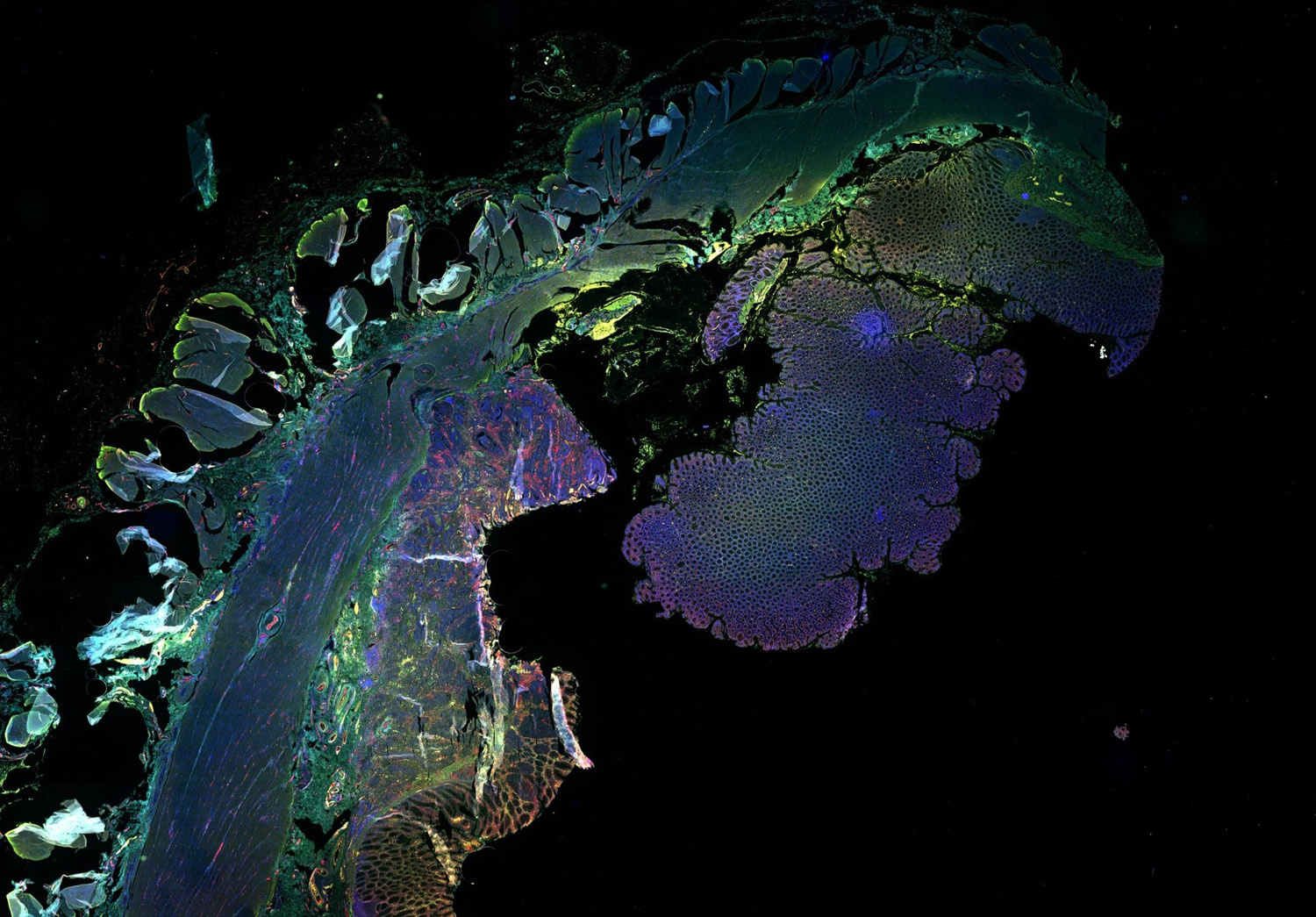Professors Frank Hollmann and Sjoerd Stallinga will each receive over EUR 2 million for their research in the field of catalysis with enzymes and 3D-microscopy respectively.
Fluorescent scan of a large area of tissue. As part of the ERC project, Stallinga and his colleagues will attempt to make these kinds of images in 3D and at super-resolution. (Image: Leon van der Graaff)
The European Research Council (ERC) has awarded 27 advanced grants of up to EUR 2.5 million to top researchers at Dutch knowledge institutes. They can use these grants for their research projects over the next five years. Two of these grants will go to TU Delft. The Universities of Leiden and Groningen are in the lead in the Netherlands with three ERC grants each.
Professor Frank Hollmann (Faculty of Applied Sciences, AS) is working on greening the chemical industry that consumes considerable amounts of energy and raw materials in their production processes. “This is a global problem for most, if not all, of the chemicals that factories now produce,” says Hollmann. He will use the ERC Advanced Grant of EUR 2.5 million from the European Union to tackle this problem over the next five years by developing enzymes as catalysts for chemical reactions.
In particular, Hollmann will develop ‘PeroxyZymes’ which can catalyse chemical reactions that are currently too complex and therefore unfeasible for the chemical industry. “We want to create enzymes that companies can use to produce bulk chemicals cost-effectively while significantly reducing their carbon footprint,” he says. “We are talking about a wide range of chemicals for products that are very important in our daily lives, from the coating of a table to textiles, fragrances, flavours, and medicines.”
Professor Sjoerd Stallinga (AS) will use the ERC Advanced grant of EUR 2.3 million to use a special light microscope to make detailed 3D images of proteins in living cells without damaging those cells. This technique requires scanning samples nanometre by nanometre with a sophisticated 3D light pattern. It calls for cooperation between various disciplines, such as optics, computer science, biochemistry and biology.
Stallinga sees applications in the medical sector such as in the search for points of interaction with medicines. One example is neuro-imaging, where light microscopy is used to look at the interaction of neurons and to search for deviations in people with diseases such as Alzheimer’s. Pathologists may also use it to look for abnormalities in tissues.
European research grants are popular. The European Research Council received 1,735 applications of which 253 were accepted. The total amount disbursed is EUR 625 million. The Netherlands was in third place with 27 grants. Only Germany (61) and the United Kingdom (45) received more. The grants for the United Kingdom are not yet confirmed given that the country has left the European Union. There is a treaty that enables the UK to participate in the European research programme, but this has to be worked out in more detail.
Bas Belleman (HOP) and Jos Wassink (Delta)
Do you have a question or comment about this article?
j.w.wassink@tudelft.nl


Comments are closed.